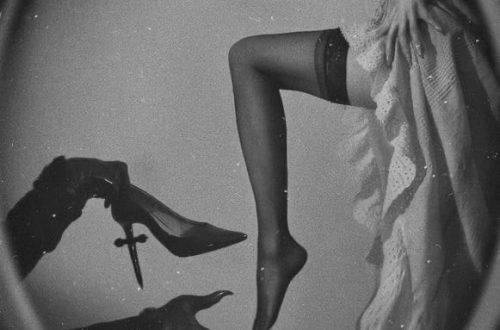This is an uncomfortable reflection on how certain “spiritual tourism trend” can turn into social media aesthetics. It’s not an attack on the rich or the poor—just a mirror held up to double standards.
When I see someone who’s been swimming in cash their whole life say
“Happiness is in the little things,”
It hits me as straight-up cynical.. Romanticizing the simple life after tasting the extravagant, the excessive, and now playing at “discovering” the luxury of the basics? Come on!
Ok, got this simple: someone who’s never had access to “the big stuff” lives the small things as their only reality, not as some aesthetic choice to look cool. For them, simple isn’t trendy minimalism—it’s just life.
Wrote another one of my philosophies this week:
*“Humanity’s problem is greed. Those who’ve had it all don’t feel empty; their hedonic treadmill just makes material things lose their thrill.”*
It’s like wearing a strong perfume and not smelling it after a while.
I’m not pointing fingers at the silver-spoon crowd..
This isn’t the tired moralistic cliché of “the rich are empty.” Nah. It’s that the rich are used to it. Their satisfaction meter is busted.
But hold up, this is just the tip of the iceberg.
The endless scroll of social media, relationships, achievements—they’re all hedonic treadmills in different flavors.
It reminds me of Epicurus, who said “True happiness comes from simple pleasures and inner peace, not piling up more stuff.”
But I don’t vibe with pretty quotes—I like it raw, natural. In the wild, nothing savage pretends to be cute.
Personally, I think those who’ve had it all aren’t filling a void; they’re just chasing something new.
It’s not humility—it’s human dissatisfaction, that endless greed. Because let’s be real here—we are wild even if we try to domesticate ourselves ❤️🔥
So… What’s the hedonic treadmill?
It’s a brain mechanism where happiness resets to a baseline after a high, as Brickman explained back in ’78.
Dopamine adapts fast, normalizing pleasure. But studies (Psychological Science, 2011) say ~40% of people can raise their happiness baseline with intentional practices like mindfulness, gratitude, or exercise, which lower amygdala activity and boost emotional control (JAMA, 2014).
Compassion meditation also cuts ego and greed (PNAS, 2008).
In short: You adapt, the spark fades, and you crave another hit.
When someone’s “had it all,” they’ve burned through all the material fireworks. Since those don’t surprise them anymore, they peek at the basics: simplicity, spirituality, “the simple life.”
But they do it from a place of privilege that sounds disconnected to those still grinding to reach what they’ve already moved past.
For them, simple isn’t a choice—it’s their reality.
When the rich “slum it,” it’s like spiritual tourism, without the real weight of the struggle.
Happiness tied to external things, big or small, isn’t happiness..
It’s just a measure of expectations, not absolute truth.
I’ve seen it all: the romantic idea that the poor are “authentic” and the rich are “fake” is pure nonsense.
We all wear masks.
Saying “thanks” from a place of inner peace is a step, but posting it on social media to sell a saintly image?
That’s just theater. As I always say: “the habit doesn’t make the monk.”
I don’t expect everyone to get everything I say—doesn’t matter what you believe, that greed, becomes a horizon that’s always out of reach..
And speaking of philosophies, in Buddhism, Advaita Vedanta, or even modern psychology, “killing the ego” means letting go of that “self” chasing desires and comparisons.
Without ego, the hedonic treadmill stops because there’s no “you” running after the carrot.
It’s not just a metaphor—it’s a path out of dissatisfaction. But I’m not selling religions or ideologies, just dropping truths.
This cracks me up because it’s like a hamster on an endless wheel…
Random thought:
We’re predictive machines. Our brains, with their prefrontal cortex and reward systems, are wired to anticipate and adapt.
That saved us on the savanna (finding water, food, safety), but in the 21st century, with endless stimuli (shopping, likes, experiences), that same mechanism screws us over.
It’s a loop:
Predict → consume → adapt → get bored → predict again.
Modern life is a trap, an outdated software running on overstimulated hardware..
Solution? Hack the circuit.
If someone calls you egocentric, they don’t get emotional independence. That’s knowing your worth: compliments don’t inflate you, criticism doesn’t deflate you, and other people’s drama or judgments don’t shake your peace. Ego isn’t the bad guy—it’s like fire: it can burn or cook, depending on how you handle it.
Gossip sesh
Someone once asked me about my most humble trait, and I said
“I’m not humble…”
That doesn’t make me a bad person; being fair from my place doesn’t need masks.
Nietzsche saw ego as a creative force, not a villain, if you channel it right.
But if you don’t control it, it drags you into seeking external validation.
The ego is like a fire: it can burn or it can cook. The difference lies in how you handle it.
My philosophy:
“Knowing your worth goes beyond motivational fluff. Real power is not letting the world manipulate you. Nothing and no one should control your inner compass.
The core is non-negotiable.”
—kimV.
Being self-centered is a totally different concept, but it’s a fine line.. emotional independence isn’t arrogance—it’s maturity. And since ppl don’t understand, they reduce it to an insult.
Oh well, society often labels anyone who dares not to care about others’ opinions as “selfish.”
This lines up with something Jung said:
“The process of individuation (becoming yourself) is often mistaken for selfishness, when it’s really about freeing yourself from collective projections.”
In short, ego-justice-humility…
So, let me sum it up:
Justice is a term people use to flex their morality in this power game. Ego is the piece you play on the board we call life, but it’s all a power game.
And humility? Well, I think it’s an absolute, unattainable ideal—even in showing it, there’s ego.
Justice in three points:
– Don’t do to others what you don’t want done to you.
– Never stick your nose in someone’s personal life to push your view of justice in any situation.
And the big one…
– If I’m gonna judge someone, I won’t use my moral code—I’ll use *yours* to show how you’re betraying yourself.
Tricky System:
A friend of mine asked me, “Who hurt you, Kim, to make you so critical?”
I told her, “Nobody. I just expected a universal ethic you can’t inherit. There are no victims, darling, only expectations.”
One time at a hotel bar, while I was having dinner, some 40-something guy said, “You’re really beautiful, let me buy you a drink.”
I shot back, “Darling, that line was old before you were born, and my beauty by your standards doesn’t need prizes.” 😎
Sassy checkmate 🤷♀️
I’ll wrap with this—Someone showed me that humanity’s problem is greed, but I watched them get tangled in the very thing they claimed to reject.
If you’re gonna play the game, play by your own rules and stay consistent—don’t twist them to fit the outcome.
Me? I said no to heaven.
Bye now! 💋





